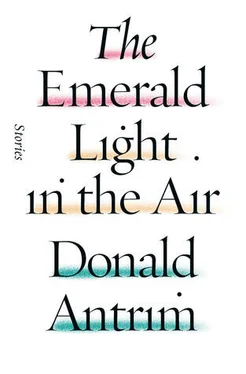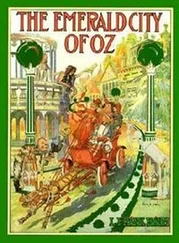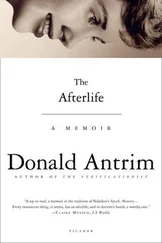They went over a rise, and then walked down along what looked like a lane — maybe the land had been cleared at one time — a grassy, open promenade between the trees. The lane led into a hollow. There was a cabin, a shed, really, with a sinking roof and small square windows and a chimney overtaken by ivy. The cabin featured a porch, though not much was left of that, only a few boards elevated on piled stones, with no steps leading up from the yard to the door. The cabin had two front doors, oddly — one beside the other. Billy didn’t see an actual road, or a car parked nearby, but there was trash littering the ground.
The boy hopped onto the porch, closed and shook the umbrella, and stomped clay from his shoes. Billy climbed onto the porch — he had to heave himself up — and kicked the red mud off his own heels. The boy pushed open the door on the left. “I brought the doctor,” he called inside.
“Show him in,” a man answered.
The boy held the door. Billy had to duck under the frame. Water ran from every part of him. The floor inside was missing in places, and the air felt cold, like a draft from underground. It smelled like the earth. Water dripped through the roof. Two windows, one in the rear and one on the side of the cabin, let in faint light — their panes, if they’d ever had any, were gone.
Billy’s eyes were adjusting. The cabin seemed bigger from inside than from out. As he came in, he saw, to the left of the door, a tumble of bags and suitcases. A dividing wall ran down the middle of the cabin, splitting the space — that explained the two front doors — and there was an interior door, partway down the dividing wall, leading to the cabin’s right-hand side. The room on the left, the one he was in, might have been ten feet wide by thirteen or fourteen feet deep. The fireplace and the chimney were over in the other half.
Billy saw a bed pushed up under the window at the back of the cabin. A woman was lying in it, and a man stood over her. The man spoke to the boy on the porch: “Caleb, put down that umbrella and get the doctor something to dry himself.”
Billy heard the other front door open and close, and he heard the sounds of the boy moving behind the dividing wall. Billy could feel his footfalls traveling through the floorboards.
“She’s struggling,” the man said to Billy.
The bed was an old iron thing with a mattress on top. The woman had a coat draped over her and a bundle of clothes for a pillow. Rain spattered the windowsill above the bed but didn’t seem to be getting on her.
“We’ve moved her from corner to corner all night, except where the floor’s out. The water follows her,” the man explained.
“It’s been quite the storm,” Billy said.
He picked his way across the damaged floor to the bedside. His shoes squished.
“Don’t fall through,” the man said.
The man was bald and hadn’t shaved — he wore the shadow of a beard. It was hard to tell if he was old, or maybe just Billy’s age, and he spoke with an accent that reminded Billy of the Appalachian mountain speech he’d heard when he was a boy, but which, even so, he couldn’t place — it wasn’t local.
“I’ll be careful,” Billy said. He felt as if he were seeing through a fog. The splashing rain on the windowsill made a mist in the air, but it was also the pot, deranging his balance, his sense of perspective.
At the bedside, Billy leaned down and saw the woman shudder beneath the coat that was covering her. Then she was still. The door in the dividing wall opened, and the boy appeared and handed him a damp, dirty piece of cloth, a towel, of sorts.
“Thank you,” Billy said.
The man said to the boy, “Go find your brother and tell him the doctor’s arrived.” The boy left the room through the front door. To Billy, the man said, “We didn’t mean to be staying here.”
They stood over the woman on the bed. Why were there no chairs? Everything looked wrecked and rotten.
Billy went down on his knees. The man said, “I know there’s nothing to be done,” and knelt, too.
The woman’s eyes were closed and her mouth was open. Her skin seemed stretched, and her lips were parched. The man told Billy that she’d taken neither food nor water for some time. He and Billy faced each other over her. There was a moment when Billy’s heart raced. The man studied him. Billy looked down. The man said, “You’re not a doctor, are you?”
“No, I’m not. I’m sorry.”
“But you’re here.”
Billy explained, “I teach junior high over in Crozet. I was on my way to the dump to throw some things out.”
“The dump’s not up here.”
“The road was blocked. I took the creek and wrecked on the rocks.”
Billy heard footsteps on the porch. The door opened and the cabin shook as Caleb and his brother came in. The brother was bigger than Caleb, older, and wore a dark shirt. They stood dripping side by side at the foot of the bed, and Billy remembered sitting at his own mother’s deathbed, feeding her a mixture of morphine drops and Ativan, squeezing her hand, and telling her he would miss her, while her breaths came farther and farther apart.
The woman on the bed inhaled. Her dark hair was fanned out around her head.
The man told the boys, “I want you two to go down to the creek and bring the doctor’s car.”
“It’s stuck,” Caleb said.
“That’s what the doctor told me,” the man said, and added, “The doctor and I will stay with her.”
“The flood may have washed it away,” Caleb said.
“Go see. Go on.”
The brothers backed away from the bed.
The man asked Billy his name, and in that moment, Billy could not say — he felt too disoriented to speak. He raised one hand and pulled the coat more neatly and more fully across the woman, tucking the collar around her neck; the tail reached almost to her feet. He saw that she was wearing socks. Her feet were tiny. He was shaking.
He tried to take a deeper breath. He felt his grandfather’s gloves shrinking and tightening as they dried on his hands.
“I can help her,” he said finally.
Light came dully through the window, and seemed to drip down between the beams overhead. Billy listened to the softening rain. He reached inside his shirt pocket and clumsily got hold of the pill bottle. He said, “This will help her rest.”
It took him some time to open the cap. He peered down into the bottle. There was a handful of pills. He thought to take one himself, maybe more than one. But there were so few; he didn’t. Instead, he asked the man, “Do you have any water?”
“Water?” the man said.
“Is there a tap?”
“No,” the man said. “There’s a pump out back.”
Billy held the open bottle in one hand. With his other hand, he reached up to the window. He stuck his hand out to catch the rain in the bottle cap. He said to the man, “I want you to watch what I’m doing.” Then he held the bottle cap over the woman’s mouth. He let a drop, and another, fall.
He shook a pill from the bottle.
“Like this,” he said.
He leaned over the woman. He held the pill unsteadily between his thumb and forefinger, between the raised seams at the fingertips of his glove. He tucked the pill beneath the woman’s lower lip, near her cheek, and then reached up and caught more rain. “Give her water with the pill.”
He shook the cap dry, then put it back on the bottle and told the man to give her four or five a day. “There should be enough here to get her through,” he said.
“Thank you for your kindness,” the man said.
After a moment, Billy left the bedside. He stepped across the broken floor planks and opened the front door. Thunder rolled in the far distance. He stood on the porch, in the drizzle, and tried to stop trembling.
Читать дальше












